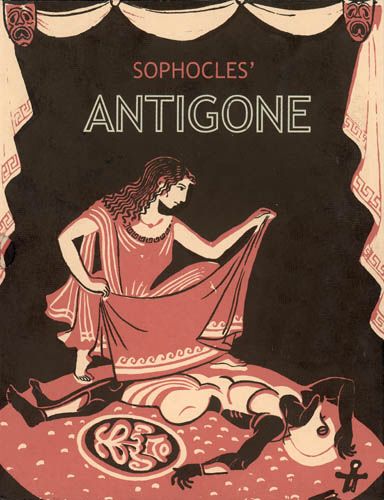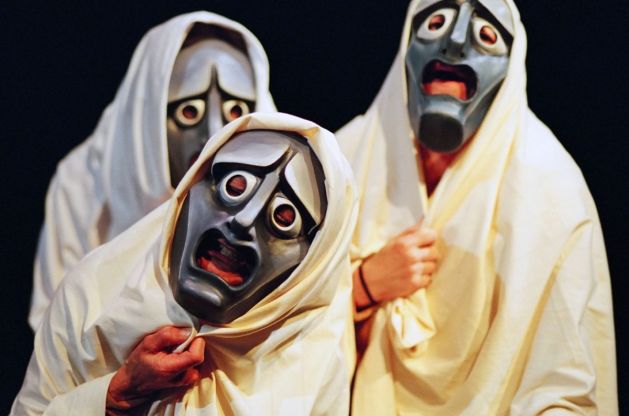The most explicit piece of evidence that the liberation of Europe was not an Allied war aim comes from the infamous “percentages agreement” between Churchill and Stalin, a deal struck at the Moscow Conference of 1944. Continue reading
Tag Archives: Greeks
The Greek “fathers of History” – Part III – Thucydides (continued and concluded)
What did Thucydides himself think? Continue reading
The Greek “fathers of History” – Part III – Thucydides
Thucydides the Athenian was, probably, slightly younger than Herodotus Continue reading
What is Antigone about?
The second half of my programme notes on Sophocles’ Antigone: Continue reading
Sophocles, Antigone, and Athenian tragedy
These are programme notes I wrote for a school production of Antigone:
The historical origins of Athenian tragedy are forever lost to us, but the Greek word “tragedy” (“goat-singers”) gives us a clue that it originated out of choral singing and dancing at sacrificial rituals. Give the chorus-leader a separate part to sing against his chorus, and later add a second and a third individual actor – and you have drama as we would recognise it today. Continue reading
The Greek “fathers of History” – Part II – Herodotus (continued and concluded)
A central question since antiquity that remains unresolved to this day is: can we trust Herodotus and his marvellous tales? In antiquity he was attacked and denounced as the “father of lies”, and this view of Herodotus – as an ancient Baron Münchausen, a teller of tall tales and a fabricator of his alleged travels and sources of information, still has currency today (see particularly the German scholar Detlev Fehling in Die Quellenangaben bei Herodot). The weight of modern scholarship, however, gives more credit to Herodotus’ attempts to resolve the exceptionally difficult problem he was grappling with Continue reading
The Greek “fathers of History” – Part II – Herodotus
In the second half of the 5th century BCE, the Greeks (or rather, a handful of individual Greeks) started thinking and writing about the past in a new and very different way from the self-aggrandisement of divinely-favoured monarchs discussed in my previous post. The radically different political and social structures of the Greek world – tiny, fiercely independent city-states [poleis] with broadly open political and legal cultures (open, that is, for the male citizen minority – slaves and women were in general firmly subordinated and excluded from public and intellectual life) – gave rise to new methods of thinking and above all arguing that form the foundations of the European intellectual tradition: rhetoric (the art of persuasion with words), logic (the science of argument), philosophy, medicine, tragic drama….and what we can, with hindsight at least, label “history”.
Historia in Greek simply means inquiry, or knowledge acquired by investigation; it is to Herodotus that we owe our modern usage of “history” to refer to a specific type of inquiry about the past. Of the life of Herodotus, almost nothing meaningful is known. Continue reading
The Greek “fathers of History” – Part I
Who was the “father of History”?
It seems certain that, as long as people have been able to talk, they have talked about events that occurred in the past, and as long as people have been able to record their thoughts in permanent marks, they have written about the past also. But writing history is something different, as I hope to show, and its origins (at least in western Eurasia – I must profess ignorance about other historiographical traditions, inter alia that of China) can be sought in the cities of ancient Greece in the latter half of the 5th century BCE – specifically in the work of two men, Herodotus and Thucydides, our two contenders for the title of “father of History”.
But let us first examine some examples of “pre-historical history” from the same cultural world as Herodotus and Thucydides – the great monarchies of the Near East in the first millennium BCE – in order to illuminate what was new about the historical enterprise of these two Greeks. Continue reading




